Posted 12 января 2023, 13:05
Published 12 января 2023, 13:05
Modified 12 января 2023, 14:40
Updated 12 января 2023, 14:40
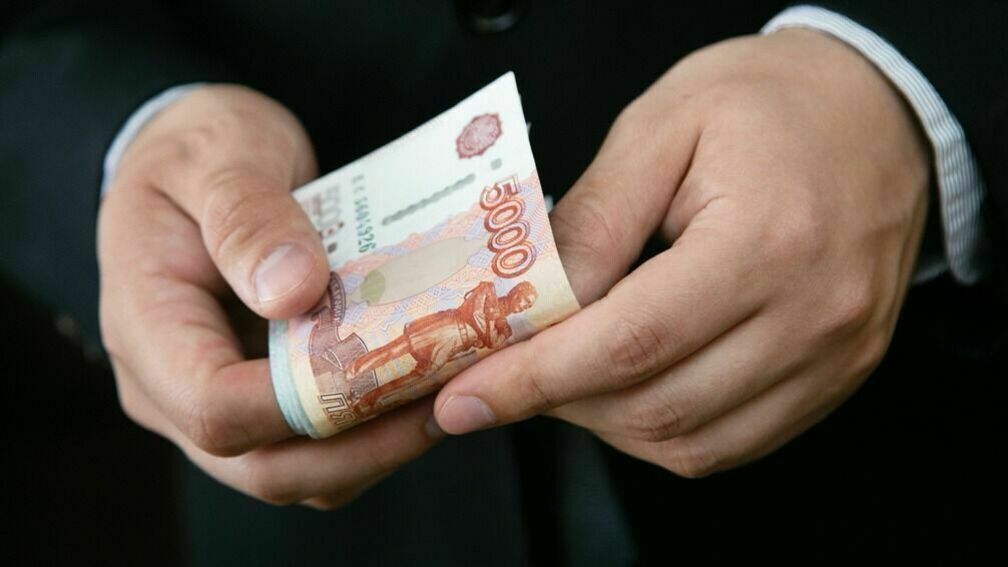
Do some catch more or the others do steal more? Why is the number of corruption cases growing
According to the portal of legal statistics of the Prosecutor General's Office of the Russian Federation, 33 170 corruption-related crimes were registered from January to November 2022. The December data has not yet been published. A year earlier, 35,051 such crimes were recorded, and in 2020 – significantly less – 30,813. At the same time, in monetary terms, the corruption trend is going in the opposite direction. In 2021, the amount of damage in such cases amounted to about 57 billion rubles, and in 2022 – only 48 billion rubles.
Several articles of the Criminal Code of the Russian Federation fall under the corruption orientation. But we will look at the trend using the example of the most obvious "official" article – "taking a bribe". In 2022 (excluding December), 4,229 criminal cases under this article were sent to the courts. In 2021 - 3,671 cases. In the pre-pandemic 2019, there were 2,999 such cases. In three difficult years, the number of cases of bribes has increased by more than 1,000.
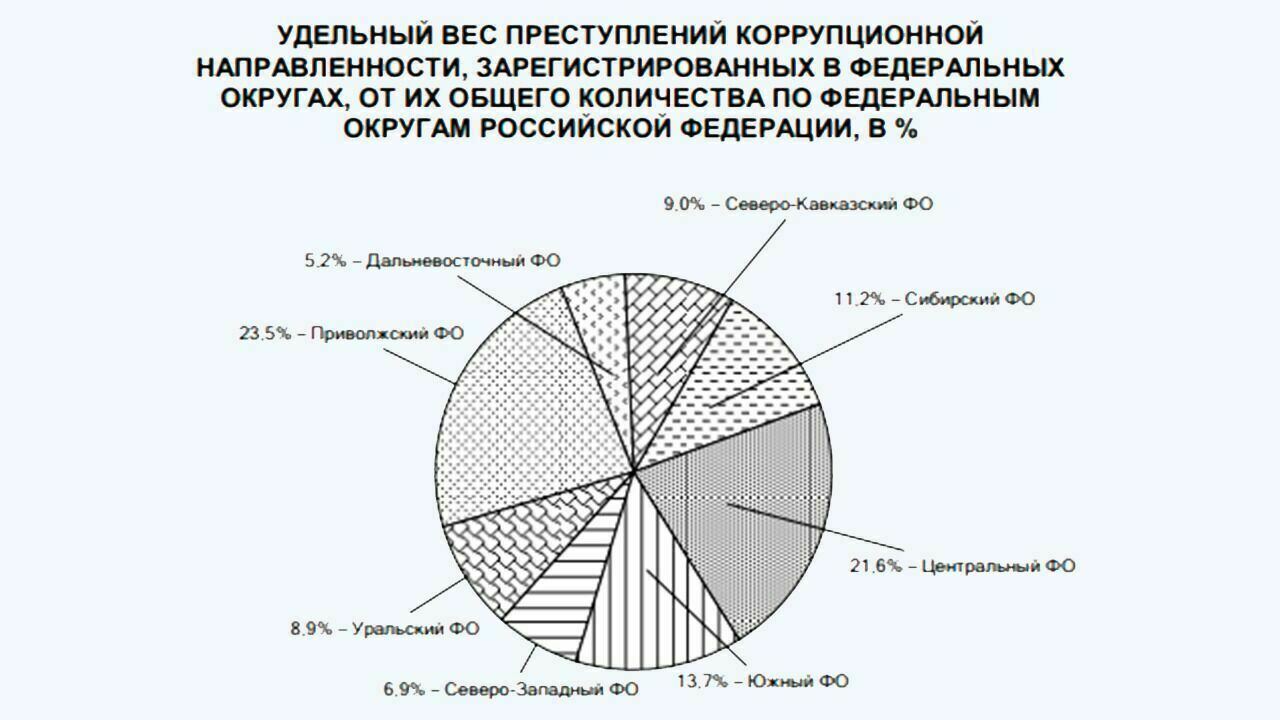

Among the federal districts, the most productive in this regard are the Central and Volga regions, which together account for almost half of all bribe takers in the country. The absolute leaders in the number of initiated cases under the article "bribe" last year were Moscow (376 cases), Stavropol (232) and Krasnodar (207) regions. No one has yet overcome the mark of 200 criminal cases in a year. Novye Izvestia has studied data for the last five years on the number of such cases in large regions with million-plus cities. Excluding the very large Moscow and St. Petersburg, the remaining 14 cities with a population of more than a million people, in terms of population and the amount of money that is concentrated in these regions, do not differ as much as from the capitals. We have compiled a rating of cities by the number of bribes revealed last year. The leaders were Moscow, Krasnodar and Kazan. But the minimum values were observed in Krasnoyarsk, Novosibirsk and Perm.
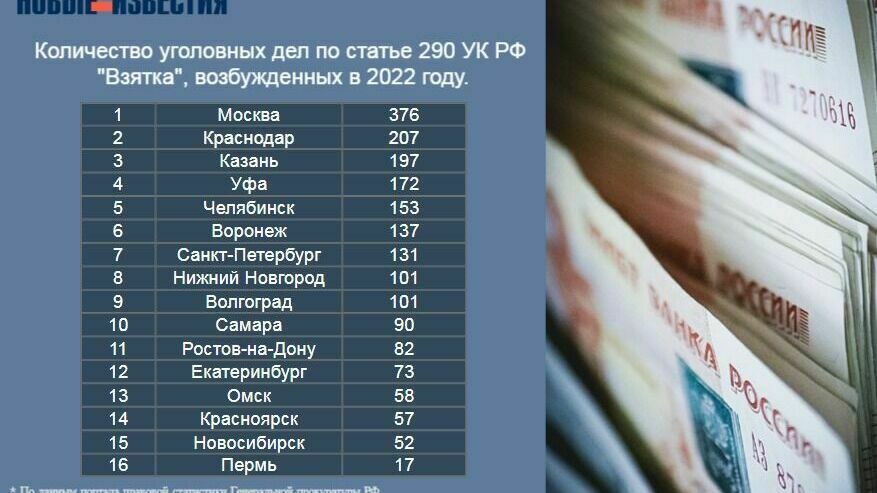

But much more interesting was the dynamics that millionaires have shown over the past five years. Almost all regions - with the exception of three - have grown in the number of cases of bribes. Nizhny Novgorod and Voronezh showed the highest dynamics, in which the number of criminal cases increased more than three times. So in Nizhny Novgorod in 2018, 32 crimes were identified that fell under the article "bribe", and in 2022 – already 101 crimes. In Voronezh, the number of cases has grown from 45 to 137 in five years. Kazan, Volgograd, Krasnodar and Ufa have also more than doubled.
A group of middle peasants (Omsk, Moscow, Samara, Novosibirsk, Chelyabinsk, St. Petersburg and Yekaterinburg) showed growth, but not more than twice. Minimal dynamics in the Sverdlovsk region, where the number of cases increased from 63 in 2018 to 73 in 2022.
Three more regions showed an anomaly. The number of registered bribes decreased here in 2022. In Krasnoyarsk, in five years, the number of such cases has fallen from 67 to 57, in Perm from 28 to 17. The minimum dynamics (a drop of more than two times) in the Rostov region. In 2018, 195 crimes were registered here, in 2022 – 82. But the region has become a leader in other statistics – in the number of cases brought to court. According to this indicator, Rostov-on-Don is in the first place in the country, 300 criminal cases under the article "bribe" were transferred to the court here. But these cases were initiated in the past years and the security forces did not keep up with their investigation in 12 months. A year earlier, in the Rostov region, only 40 such cases were referred to the court.
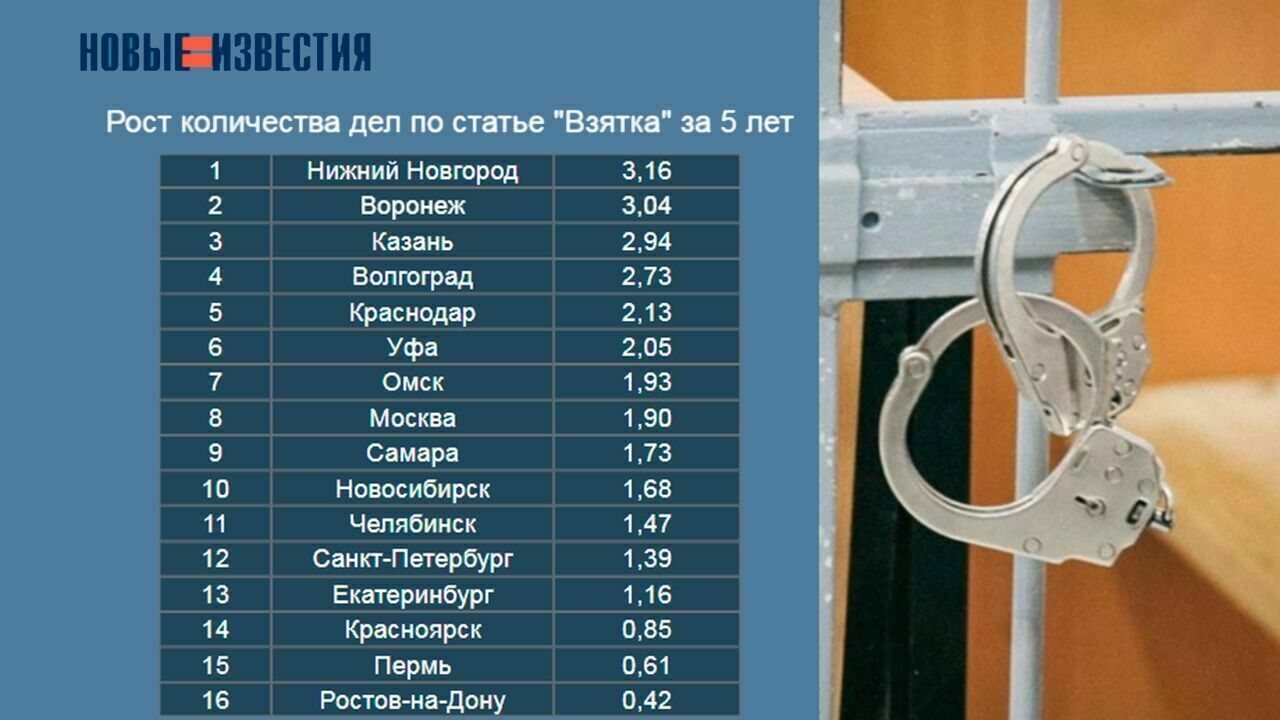

Power trend
The experts interviewed by Novye Izvestia believe that the increased activity of law enforcement agencies, and not the corrupt officials themselves, is behind such a sharp change in statistics. The latter, surprisingly, suffered not only from the security forces, but also from sanctions.
"This is the activity of the security forces, they have become better able to see such crimes, transactions, the system of public procurement analysis has become more transparent", - says political consultant Yaroslav Ignatovsky. - As strange as it sounds, sanctions have affected. Almost all banks are disconnected from the SWIFT system. It is more difficult to withdraw money to offshore, abroad, it is also difficult with cashing out and transfers to cryptocurrencies. In addition, the correspondence of those who are in operational development is read, all his communications are under control. Classic schemes with one-day firms and winning tenders for shell companies - it's all clearly visible now".
Political lawyer, co-founder of the RAPK Oleg Molchanov, arguing about why the number of corruption cases differs markedly from region to region, notes that there are three reasons for this.
"As soon as the heads of law enforcement agencies change in rotation in the region, all statistical indicators go up immediately, including the detection of corruption-related crimes. Also, more crimes are detected where the political leadership of the region supports the fight against corruption, and this is not everywhere, - the expert says. - The second reason is the economic state of the region. The richer the region, the more money in the budget, the more temptations and opportunities they will profit from. Now many industrialized regions have sunk heavily in budget revenues due to the export shutdown. And the competition for budget money has increased many times. Such competition may even increase the number of detected cases of corruption due to the denunciations of competitors. The third reason is the use of corrupt articles of the Criminal Code as a cudgel of regional authorities against too independent local self-government bodies or uncontrolled businesses. There are a little fewer such cases, simply because there are almost no independent LSG and businesses left, including because of the Tax Code, which leaves too little income on the ground". I agree that the fight against corruption can be an instrument of inter-elite struggle and political scientist Alexander Podoprigora.
"Corruption and the "fight" against it performs the function of regulating elites and the redistribution of rents - someone is identified and significantly punished, at the same time his regulatory spheres are transferred to other clans. The fewer resources and prospects for "normal" development become in society, the more active these processes are", - the expert says.
However, there is also a reverse trend: more money does not always mean more corruption.
This can be seen by comparing two neighboring regions, which are usually compared, the Chelyabinsk and Sverdlovsk regions. Both regions are close in population, climate, and the presence of large-scale industry. Large metallurgical holdings such as RMK, UMMC, TMK operate in both subjects. But despite the fact that the Sverdlovsk region is richer and more metropolitan, the number of criminal cases under the article "bribe" is almost two times less here than in the poorer Chelyabinsk region. Alexander Podoprigora connects this with the political situation within the subjects.
"In the Chelyabinsk region, in comparison with the Sverdlovsk region, there is an order of magnitude less competitive environment - in business, politics, media and other things, and the government is closed in a relatively small, closely "united" clan," the expert says. - This greatly stimulates corruption, but in the current conditions of information transparency, the authorities cannot completely close themselves from society and the "siloviki", who have not been subordinated to the regional authorities for a long time, use the available information for their investigations and the implementation of their plans. Hence the results".
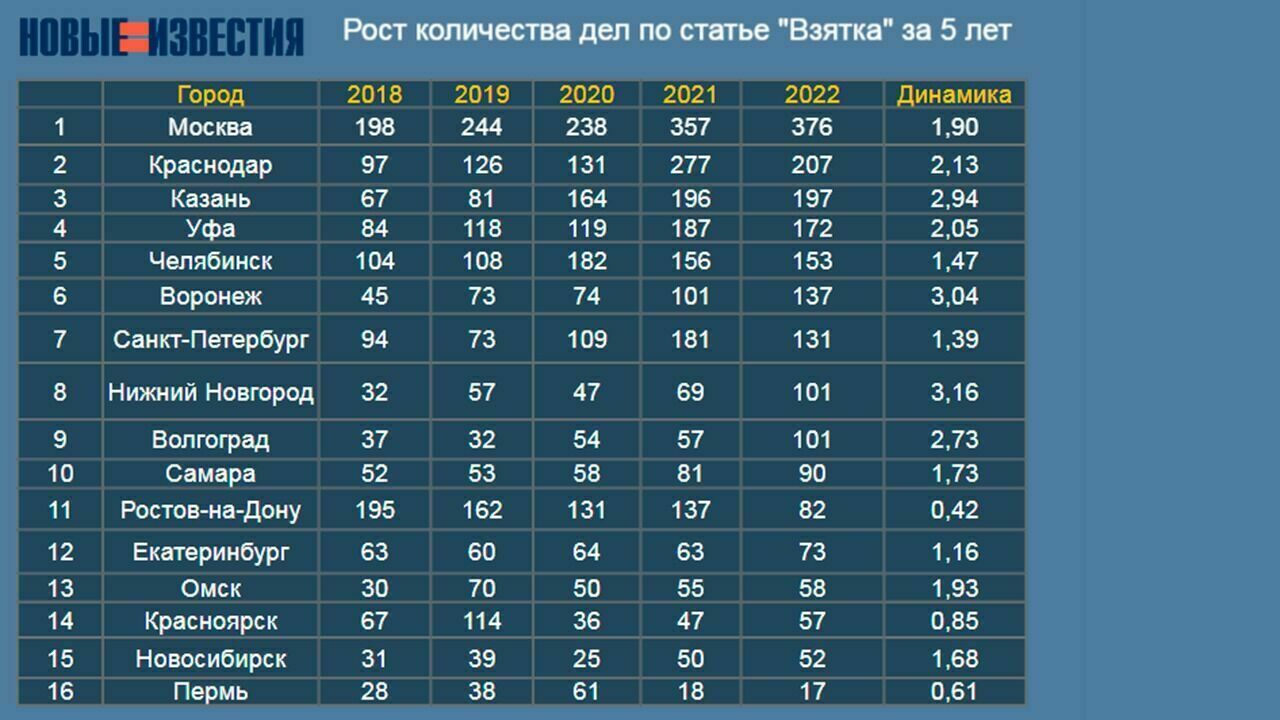

Lawyer, former operative Sergey Kolosovsky believes that the statistics of corruption crimes show rather the increased attention of society and the security forces to this topic, rather than a real increase in the number of corrupt officials.
"I would not trust statistics in the law enforcement sphere," the lawyer says, "it reflects trends that are now more important for law enforcement officers. For example, now the bulk of people in custody are connected with drug trafficking. But this does not mean that all our crime is connected with the sale of drugs. It's just that at some point the objective catastrophe with drug addiction became resonant, and received the most stringent measures. The same thing happens with corruption cases. There is a trend in Russia to "shoot" the heads of municipalities. But if you look into the structure of these crimes, it turns out that in half of the cases there is no composition, and the other half of the soldiers are not corrupt. There are only a few real cases where there was an operational experiment, red-handed detention. What to do about it is an ancient conversation about the abolition of the stick system. If you cancel, how to take into account who is working and who is idling? This reporting is the only source of information, but due to the fact that it is inflated, it cannot be trusted. It only shows which areas of the law enforcement system are priorities. Wait a couple of years, and there will be more stranglers than corrupt doctors. Now the trend is set: the runny nose is not cured – negligence. And then it will be in the statistics: doctors began to commit more crimes. But this is not so, they just began to pay more attention to this category".
High- profile cases
Corruption in the regions is not only statistics, but also specific stories that have been rattling in the media for months or even years. Moscow traditionally supplies vivid corruption cases. There are more officials and more money in the capital, so the scope is much larger.
So in March last year, the Tagansky Court of Moscow sentenced Pavel Servatinsky, director of the Department of Metallurgy and Building Materials of the Ministry of Industry and Trade of Russia, to 4.5 years in prison, who was found to have exceeded his official powers.
According to investigators, the official illegally allocated a subsidy of more than 30 million to a commercial organization that was not entitled to state support. The claims against the Ministry of Industry and Trade did not end there, the deputy director of the Department of Pharmaceutical Industry Olga Podkidysheva and the former head of the same department Olga Kolotilova were arrested. They could have been members of a criminal group that stole about half a billion rubles from the budget during the procurement of foreign medicines.
The case against the vice-president of Sberbank, the former Deputy Minister of Education Marina Rakova, became loud. Her in 2021, together with her husband Artur Stetsenko, rector of the Moscow Higher School of Social and Economic Sciences ("Shaninka") Sergey Zuev and a number of other defendants were detained on charges of fraud with the funds of the Fund for the Development of New Forms of Education. In the fall of this year, the defendants in the case pleaded guilty and reimbursed the multimillion-dollar damage. They are now awaiting trial.
Unusually, claims were formulated against the head of the interdistrict inspection No. 3 of Moscow, Marina Chaiko. She was suspected of receiving illegal income at the end of 2021. According to investigators, Chaiko arranged for her husband to work in large companies that needed the protection of the tax service. The man received a salary of up to 2 million rubles a month.
Perhaps the most resonant case against a top official in recent years can be called the case against the minister of the "open government" Mikhail Abyzov, who was detained in 2019 on charges of creating a criminal community and embezzlement. According to investigators, he took about 4 billion rubles abroad. Now Abyzov's case is being considered in court.
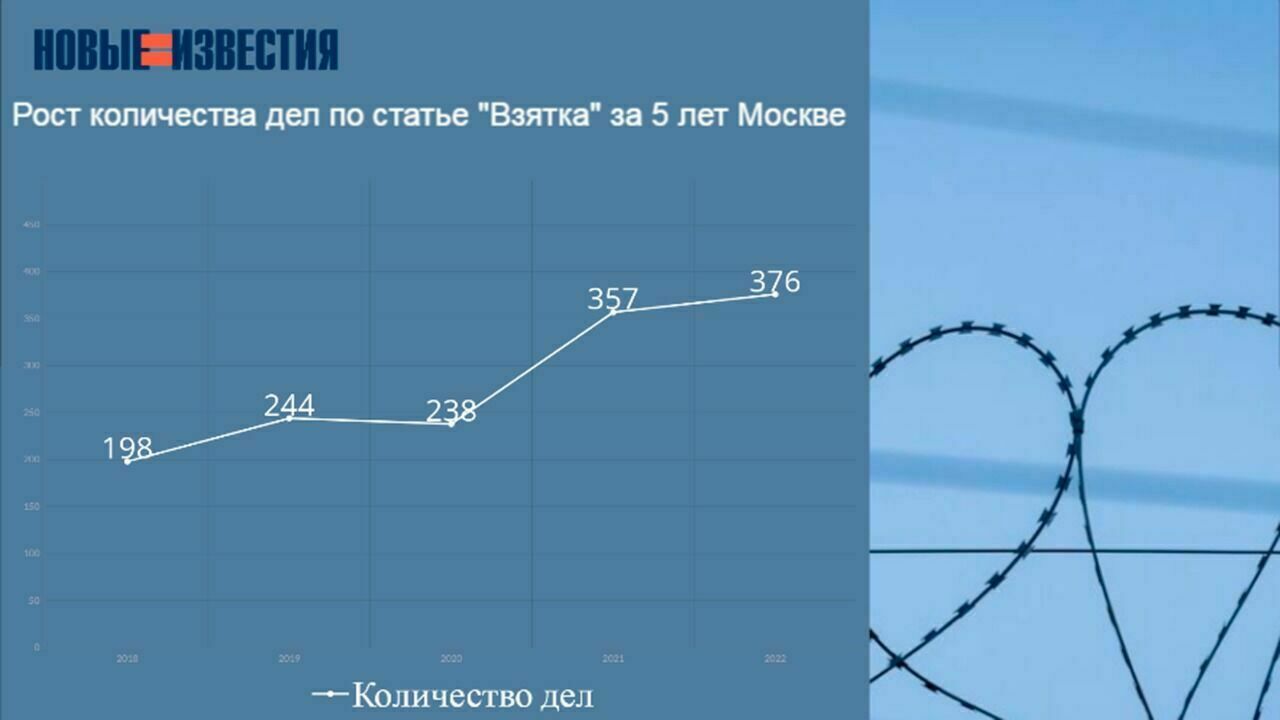

Krasnodar Krai is also full of bright stories. The case of the now former judge Yelena Khakhaleva, who became known thanks to her daughter's wedding, thundered throughout the country. The celebration with the participation of pop stars, according to journalists, cost $ 5 million. After that, the judge had problems, she was fired for absenteeism, and then a criminal case appeared under the articles "Fraud" and "Official forgery". At the moment, Khakhaleva lives abroad and has been arrested in absentia.
In 2021, the arrest of FSB Lieutenant Colonel Alexander Kubrak was reported. According to investigators, he systematically extorted large sums of money from the entrepreneur and for several years "took out" 110 million from the merchant. No further investigation of the case was reported.
Now a criminal case is being considered in Krasnodar against the former vice-mayor of Krasnodar Krill Mavridi, who is accused of taking a bribe that he received from merchants for patronage.
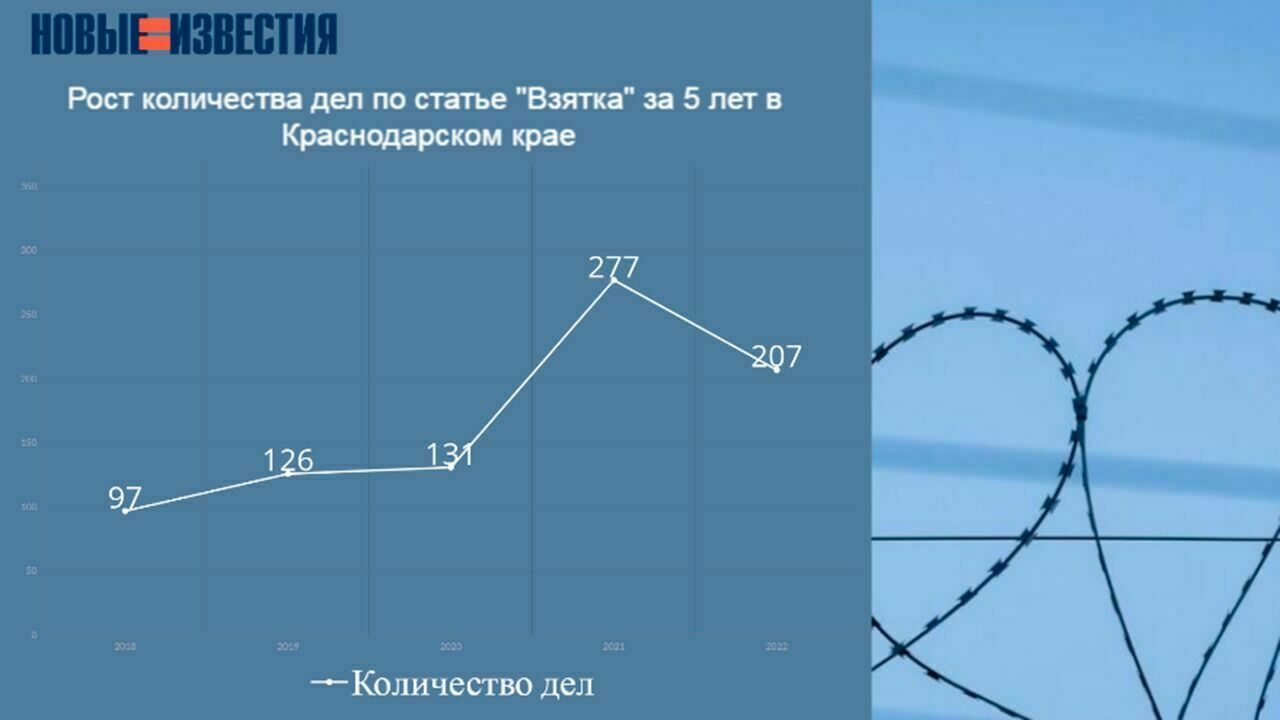

Chelyabinsk Region occupies a prominent place on the corruption map of the country. Two governors in a row left their posts amid scandals. Mikhail Yurevich was accused of taking bribes, including kickbacks in road construction. The ex-official is now hiding in London. His successor Boris Dubrovsky left the post ahead of schedule amid FAS statements about restricting competition on the same road contracts. Subsequently, Dubrovsky sued the antimonopoly authority, but according to media reports continues to live abroad.
The former mayor of Chelyabinsk Yevgeny Teftelev, who received three years in prison for a bribe of 2.5 million from a construction company for patronage, was also in the dock.
The representative of Chelyabinsk, State Duma deputy Vadim Belousov in 2022 was sentenced to 10 years in a penal colony for one of the largest bribes in practice – 3.25 billion rubles. According to investigators, Belousov received money from a road company for patronage in the execution of contracts for road repairs in the region. Interestingly, Belousov was waiting for the trial on his own recognizance and did not show up for the verdict. He is now a fugitive from justice.
Right now, a corruption plot is developing in Chelyabinsk: a number of former employees of the city hall are accused of taking bribes. So the former adviser to the mayor Natalia Kotova, Peter Konarev, is suspected of receiving a bribe for patronizing the stall business. The same claims were made to the former heads of the MCU "Urban Environment". In addition, Rinat Kuchitarov, chairman of the Chelyabinsk Administration's Road management Committee, was detained, who is accused of part 3 of Article 285 of the Criminal Code of the Russian Federation "Abuse of official authority". According to investigators, in 2020 he paid for the work under the road contract at an inflated cost, some of the work was not performed at all. More than 40 million rubles were spent from the budget.
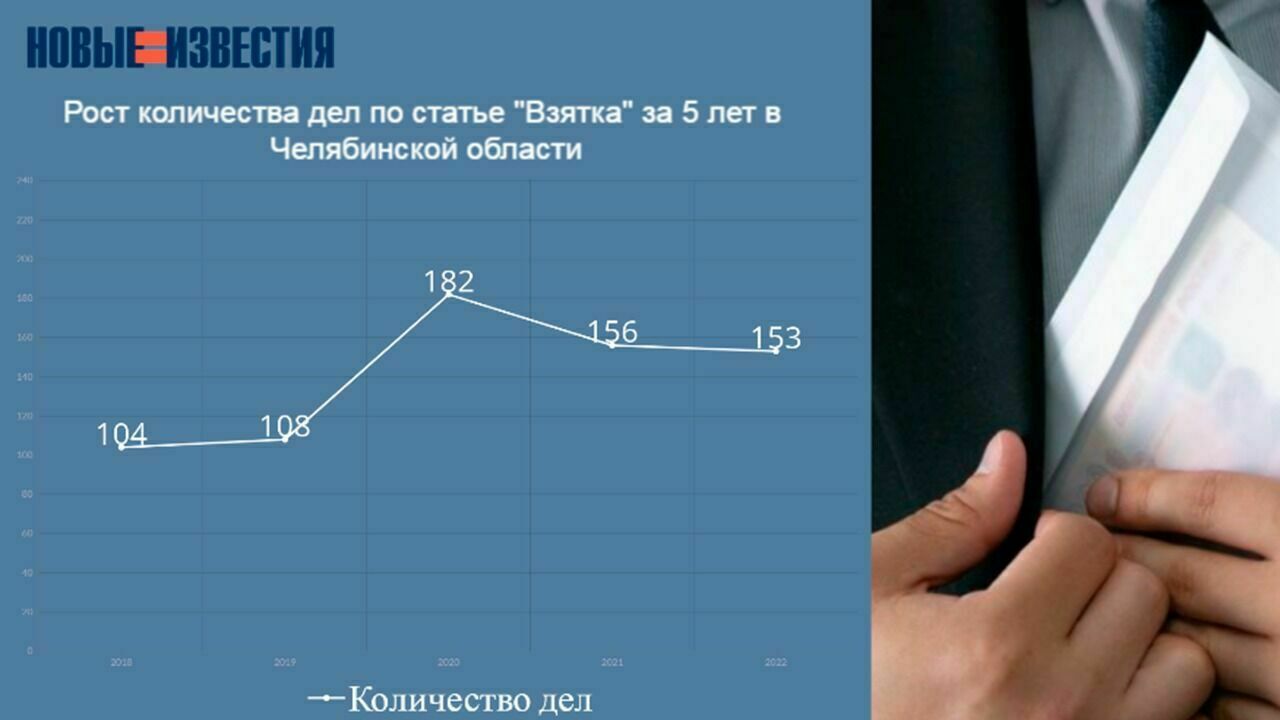

In 2021, Sergey Moiseyenko, the former deputy head of the Federal Penitentiary Service of Russia for St. Petersburg and the Leningrad Region, was sentenced in the Northern Capital. He was accused of receiving a bribe totaling 711 million rubles. during the construction of the Kresty-2 detention facility. The case also featured charges of incitement to murder, so the final term was 18 years in the colony. Another high–profile case from the Northern Capital is the story of Deputy of the Legislative Assembly Roman Koval, who was found guilty of receiving 10.6 million rubles and an Audi Q7 car at a price of 6.2 million rubles for applying a deputy amendment to the budget, which provided funding for institutions.
In 2020, several heads of the Nizhny Novgorod UFSIN were under investigation at once, who collected a kind of tribute from subordinates who received awards. In 2021, the court sentenced the former head of the Balakhninsky district (Nizhny Novgorod region), Alexander Glushkov, and his brother, deputy Vladimir Glushkov. They were found guilty of illegal addition to the city bus station of a shopping center, fraud and bribery. The brothers received 9 and 11 years, as well as a fine of 100 million rubles.
In Samara, one of the biggest corruption cases of recent years was the case of the police chief of the city department of the Ministry of Internal Affairs of Russia Vyacheslav Chomsky. He was found guilty of taking bribes from a local organized criminal group in the amount of 22 million rubles. The court appointed him 10 years in the colony.
For several years, Yekaterinburg has been unwinding several criminal cases around the Ministry of State Property Management of the Sverdlovsk region. The main person involved is former Minister Alexey Pyankov. He is accused of embezzlement of state property, abuse of office and bribery. According to investigators, he created an organized criminal group that used one-day firms and offshore companies that withdrew budget money, as well as led to the destruction of the cultural heritage site. One of the episodes is related to the preparation of the city for the 2018 FIFA World Cup. Then it was planned to buy out at the expense of the budget and demolish several buildings near the stadium. According to the security forces, for a bribe, the price of one of these objects was overstated by 55 million rubles. In November last year, the case of Pyankov received an unexpected turn. Shortly before the end of the investigation, the ex-official, who was released on bail, was called up as part of a partial mobilization, and he went to the SVO zone.
For Krasnoyarsk, the loudest was the detention of Oleg Mitvol, chairman of the Board of Directors of the Krasnoyarsk Trust for Engineering and Construction Surveys, who is better known for his work as prefect of the Northern Administrative District of Moscow and deputy of Rosprirodnadzor. In the summer of 2022, he was arrested on suspicion of embezzlement of 900 million rubles. "Krasnoyarsk CIS" was engaged in the design of the metro. Shortly after his arrest, Mitvol made a deal with the investigation and declared his readiness to compensate the imputed damage.
At the beginning of 2022, the former prosecutor of the Novosibirsk region, Vladimir Falileev, and his ex-deputy, Andrei Turbin, were detained, who were suspected of patronizing a large shopping center.